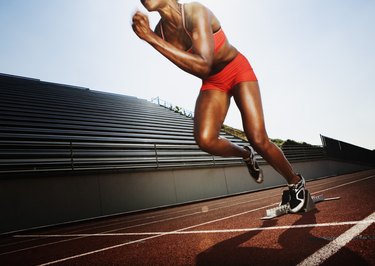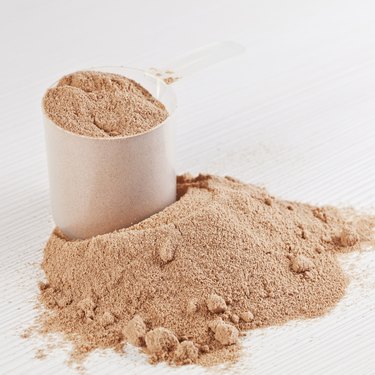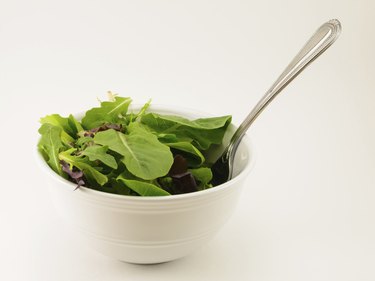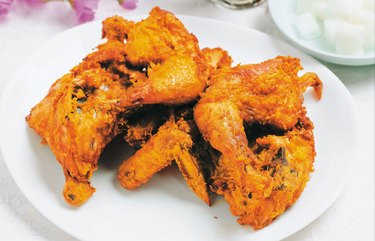
Sprinters are a prime example of how important nutrition is for performance. To compete at the highest level, they need their nutrition to be on point so they have enough energy to stick to a demanding training schedule, yet they don't eat so much they gain body fat, which can affect performance. Even if you're not competing at the top level and just sprinting for your school, as part of an athletics team or for fun, you can make tweaks to your diet to optimize your performance on the track.
Fueling the Fire
Video of the Day

Calories are one of the most important aspects for sprinters to consider, but they can be a bit of a conundrum. Training sessions are rigorous, so you need plenty of calories for energy. However, body weight is also a concern -- you need to have a low body fat level while still maintaining muscle mass to generate power. During the off-season, increase your calorie intake to the point where your weight is stable week after week and you're eating enough so you feel energized for training and recover well after sessions. Sprinters often have to lose body weight in the lead up to a competition, according to the Australian Institute of Sport. Cut your calorie intake as competition approaches.
Video of the Day
Protein Power

Sprinters should prioritize protein, notes "Men's Fitness," averaging around 1 gram per pound of body weight each day, or 60 percent of your total calorie intake. Focus on lean protein sources such as chicken breast and fish. Sprinter Allyson Felix, winner of three gold medals at the London 2012 Olympic Games also recommends having a protein-based drink after training sessions to help you recover.
Counting the Carbs

Unlike longer running events, sprinters don't need a lot of carbohydrates. "Men's Fitness" advises getting most of your carbs from fruits and vegetables, sticking to dark-colored ones when possible. These include spinach, kale, broccoli, leeks, cabbage and all types of berries. You might find having a small portion of starchier carbohydrate, such as sweet potato, whole-grain bread or oatmeal before a race of training session gives you an energy boost, however, so time the majority of your carbohydrates around training and competitions.
On the Right Track

Staying strict with your diet is important, but you don't have to be 100 percent strict, 100 percent of the time. World record 100 and 200 meter holder Usain Bolt is known to bend the rules when it comes to dieting, claiming to eat fried chicken and fast food before races. Bolt does concede, however, that most of the time, he follows a healthy plan, consisting of meat, fish, rice, bananas, yams and traditional Jamaican dishes. U.S. sprinter Justin Gatlin adds that the older you get, the more you have to watch what you eat if you don't want to pile on the pounds and slow down.